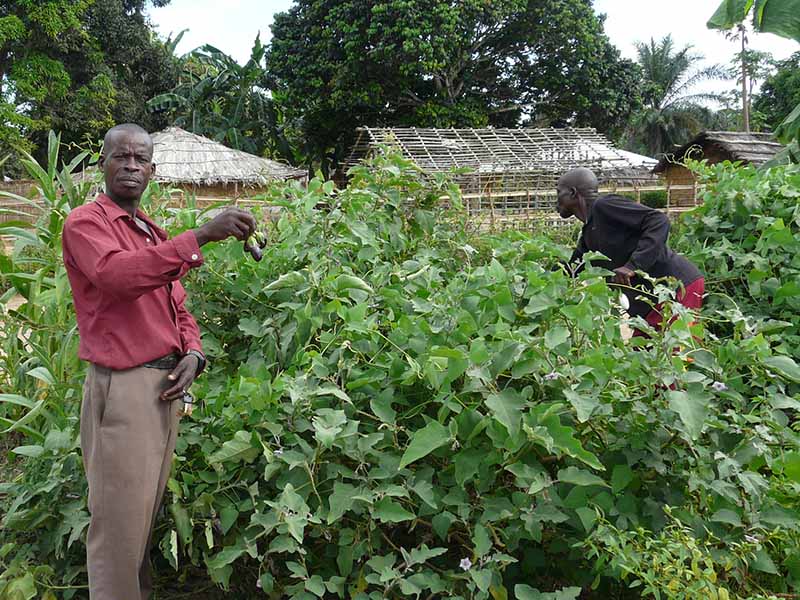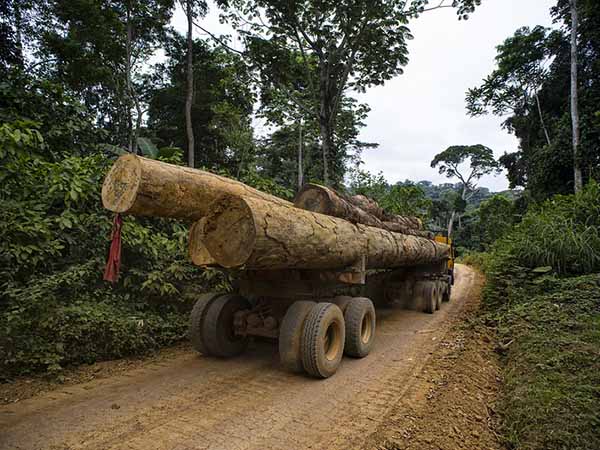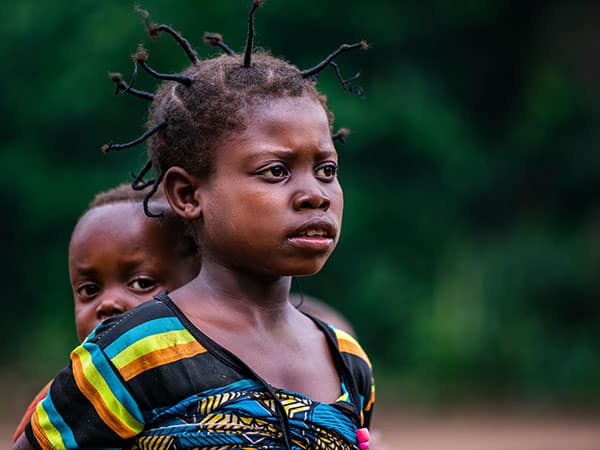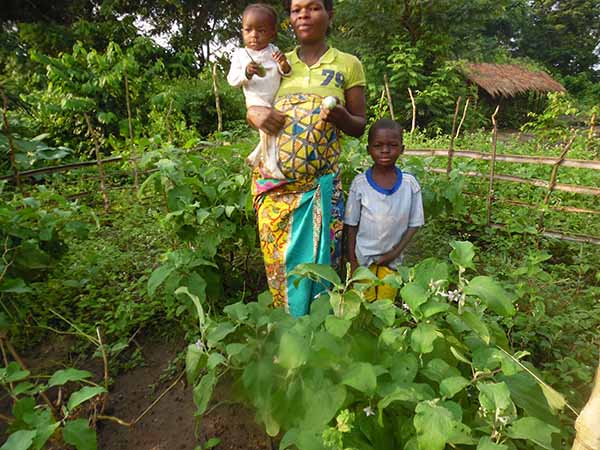Congo Basin: Revive
Synchronicity Earth supports communities and Indigenous Peoples to revive ecosystems and biodiversity through regenerative approaches, for example, by championing agro-ecological approaches to food production. By promoting integrated, beneficial and holistic models of development, our aim is to help ensure that that economic growth does not come at a heavy price for people and their environment.
We support interventions that promote and replicate successful examples of nature-friendly living, whilst at the same time creating, strengthening, implementing and enforcing laws that protect nature and people.
We help our partners to explore alternative development pathways by:
Supporting regenerative approaches to development and food production.
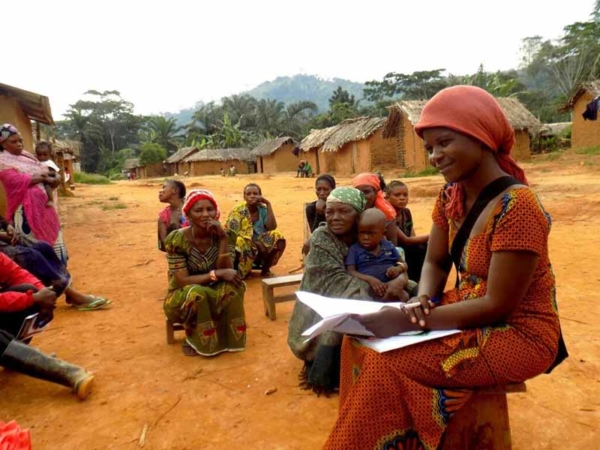
Promoting approaches to food production such as agroecology, placing nature and people at the heart of activities and helping to preserve ecosystems in ways that also benefit people whose lives depend on the forest.
Encouraging best practice where protected areas or REDD+ projects are established.
Where there are existing initiatives in place, we work with our partners to encourage best practice (e.g.,Free Prior Informed Consent or shared benefits), including improving relationships between park/project staff and local communities.
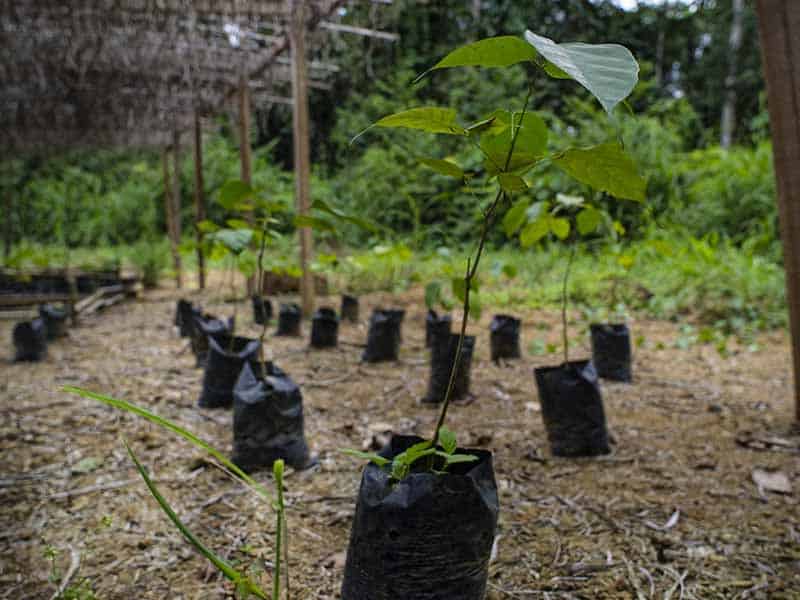
Working with our partners to co-create opportunities for broader more far-reaching change.
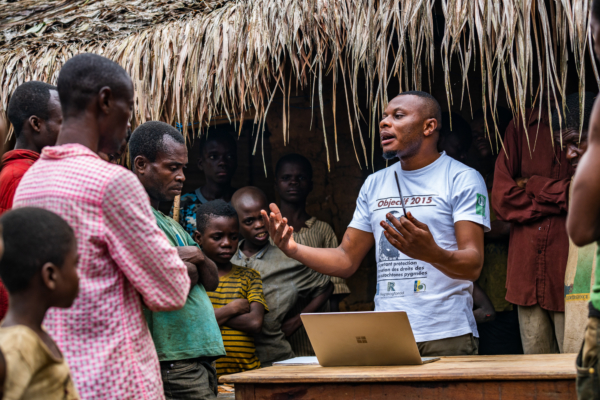
In the longer term, we support the development and implementation of new laws that place nature and people at their core and create an enabling environment for bottom-up ‘alternative development’ movements to develop, e.g., around agroecology.
* Images (L to R): Rainforest Foundation UK; Ollivier Girard/CIFOR; Chris Scarffe
“Supporting efforts to build communities’ livelihoods and developing ‘community forests’ secures their lands against complex ‘development’ projects and land-grabbing from corporates and political elites. This is key for indigenous peoples and other forest-dwelling communities, whose voices are hardly heard in the political sphere.”
Samuel Nnah Ndobe, Land Rights activist, Cameroon
Development to benefit people and planet
Partner Profile: Mbou Mon Tour
Mbou Mon Tour is a group of communities working in Mai Ndombe, Democratic Republic of Congo (DRC), to protect forests and savannah, which are home to Bonobos and other small primates, and carry out nature-friendly development activities to alleviate poverty and malnutrition. In many parts of the DRC, Bonobos are hunted commercially for the bushmeat trade and subsistence. In Nkala and surrounding villages, the Batéké have a longstanding taboo on eating Bonobos. However, as other groups and logging companies have moved into the area, this taboo has become degraded and hunting (as well as agriculture) now threatens Bonobos and other wildlife.
In a bid to protect the Bonobos and their forest-savannah home, MMT has established an awareness-raising programme in local villages to revive the bushmeat taboo; set up a network of six community-protected forest areas; employed local villagers as Bonobo trackers; and developed small-scale development activities. In 2019, after several years of work, MMT secured official recognition for the communities’ forests as community-protected forests under Article 22 of the Congolese Forest Code. This is one of the few cases we know of where this law has been used primarily for biodiversity conservation. Synchronicity Earth has provided core and programme support to MMT since 2016.
“Our approach to conservation is not about parks, or reserves. Our model is based on the Congolese forest code, which recognises the right of local communities to designate part of the forest to use in any way they choose. We’ve benefitted from this code to create local community forests where our bonobos are found.”
Jean-Christophe Bokika Ngawolo, President, Mbou Mon Tour

